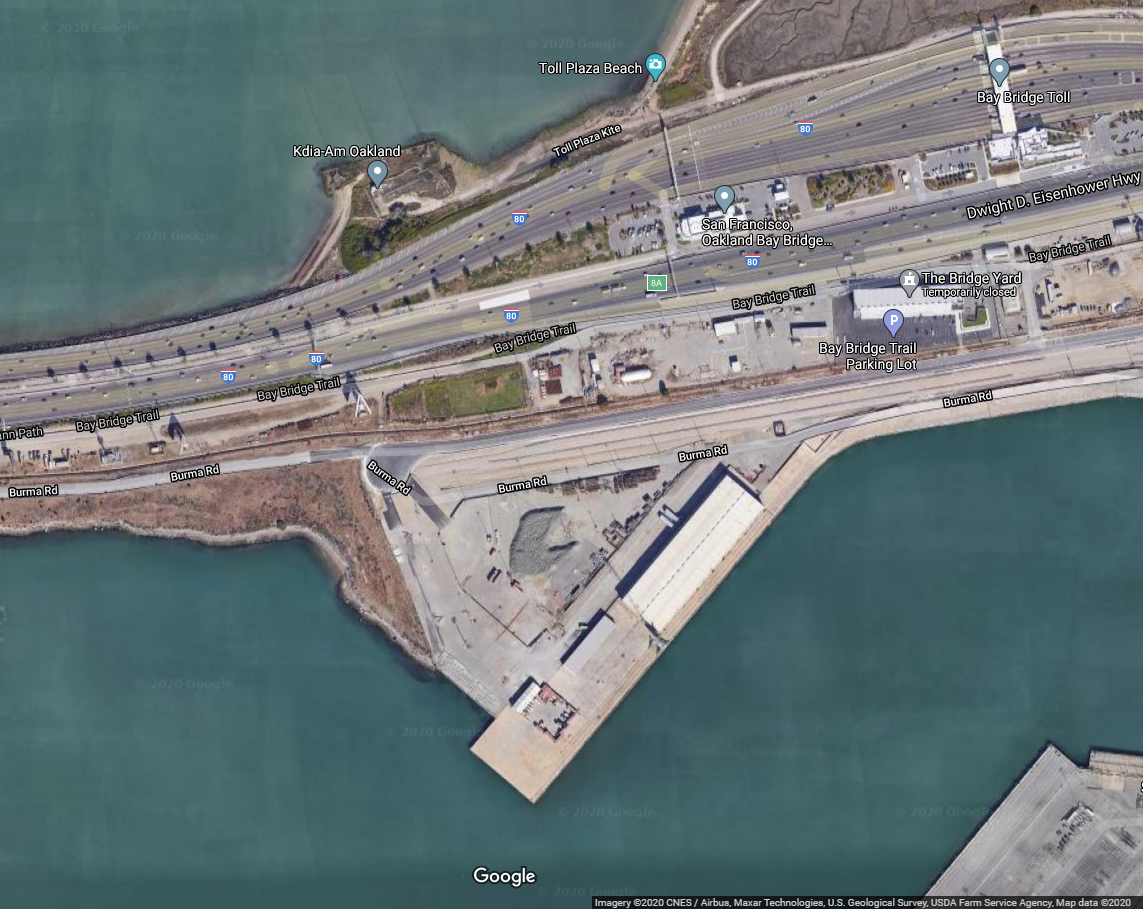Oakland sues would-be coal developers
The City of Oakland has now sued the Oakland Bulk and Oversized Terminal (OBOT) and California Capital Investment Group (CCIG) for breach of contracts to construct the bulk terminal at the West Gateway. This is the third lawsuit filed in the ongoing conflict between OBOT/CCIG and the City of Oakland, and the first filed by the City.
The City filed its complaint in state court on May 27, 2020, the day after the Ninth Circuit Court of Appeals sustained the federal trial court ruling that overturned application of the city’s ban on coal to OBOT. In its complaint, the City describes milestones that were contractually required of the developer, but were never met.
The first milestone was to begin construction no later than August 14, 2018; 21 months later, construction has yet to begin. The second milestone was to complete construction two years after issuance of building permits, but the developer never even applied for permits, much less completed construction..
Because these contractual obligations were not met, the complaint requests remedies specified in the contracts. If the court agrees that the City is entitled to these remedies, OBOT would be required to pay damages, attorneys’ fees and expenses, and the costs of the lawsuit. OBOT would forfeit its lease of the West Gateway property and return control of the site to the City of Oakland.
The City notes that OBOT and CCIG blame the coal controversy for their inaction. “But the City is not to blame for CCIG and OBOT’s failure to meet their independent obligations […] –requirements that CCIG and OBOT agreed to as sophisticated developers and with full awareness of the controversy over coal.” And, later in the complaint, “The City’s actions with respect to the ordinance and resolution do not excuse OBOT’s failure to comply with its obligations under the Ground Lease.”
According to the complaint, the closest thing to a plan for building the project is a “Basis of Design” submitted by the developers in 2015 after the coal controversy erupted. The City points out that the “Basis of Design” was neither a plan nor a building permit application, but at most “a basic framework for the project, with the details yet to be filled in.”
The City notes, “At what CCIG and OBOT concede was a ‘pre-application’ meeting with the City in 2016 regarding potential building permits, CCIG and OBOT again presented the Basis of Design, and walked out of the meeting and abandoned the collaborative process when City officials discussed regulatory requirements.”
OBOT has previously filed its own suit in state court alleging that the City breached the contracts and OBOT is owed damages. OBOT’s suit has been stayed while the state Court of Appeal considers the City of Oakland’s appeal of an initial procedural ruling by Judge Jo-Lynne Lee. In its filing of May 27, the City has also made procedural requests concerning assignment of its case, pointing to the complexity and interrelatedness of the multiple ongoing lawsuits; and has demanded a jury trial.
Image: The undeveloped West Gateway site, south and west of the Bay Bridge Toll Plaza, circa 2020. Image attribution: Google Maps (imagery © 2020 CNES/Airbus, Maxar Technologies, US Geological Survey, USDA Farm Service Agency).
